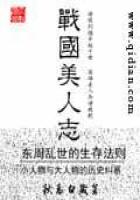The truth is,I take it,that in what our Author has said of power,he has been speaking,as it were,by anticipation:and that what he means by it,is not any power of either kind actually possessed by any man,or body of men,at the juncture he supposes,but only a capacity,if one may call it so,of retaining and putting into action political power,whensoever it shall have been conferred.Now,of actual power,the quantity that is possessed is,in every case,one and the same:for it is neither more nor less than the supreme power.But as to the capacity above spoken of,there do seem,indeed,to be good grounds for supposing it to subsist in a higher degree in a single man than in a body.
10.These grounds it will not be expected that I should display at large:
a slight sketch will be sufficient.The efficacy of power is,in part at least,in proportion to the promptitude of obedience:the promptitude of obedience is,in part,in proportion to the promptitude of command:command is an expression of will:a will is sooner formed by one than many.And this,or something like it,I take to be the plain English of our Author's metaphor,where he tells us,(59)as we shall see a little farther on,(60)that `a monarchy is the most powerful'(form of government)`of any,all the sinews of government being knit together,and united in the hands of the prince.'
11.The next paragraph,short as it is,contains variety of matter.
The first two sentences of it are to let us know,that with regard to the manner in which each of the particular governments that we know of have been formed,he thinks proper to pass it by.A third is to intimate,for the second time,that all governments must be absolute in some hands or other.In the fourth and last,he favours us with a very comfortable piece of intelligence;the truth of which,but for his averment,few of us perhaps would have suspected.This is,that the qualifications mentioned by the last paragraph as requisite to be possessed by all Governors of states are,or at least once upon a time were,actually possessed by them:(i.e.)according to the opinion of somebody;but of what somebody is not altogether clear:whether in the opinion of these Governors themselves,or of the persons governed by them.
12.`How the several forms of government we now see in the world at first actually began,'says our Author,`is matter of great uncertainty,and has occasioned infinite disputes.It is not my business or intention to enter into any of them.However they began,or by what right soever they subsist,there is and must be in all of them a supreme,irresistible,absolute,uncontrolled authority,in which the jura summi imperii ,or the rights of sovereignty,reside.And this authority is placed in those hands,wherein (according to the OPINION of the FOUNDERS of such respective states,either expressly given or collected from their tacit APPROBATION)the qualities requisite fot supremacy,wisdom,goodness,and power,are the most likely to be found.'(61)13.Who those persons are whom our Author means here by the word founders;whether those who became the Governors of the states in question,or those who became the governed,or both together,is what I would not take upon me to determine.For aught I know he may have meant neither the one nor the other,but some third person.And,indeed,what I am vehemently inclined to suspect is,that,in our Author's large conception,the mighty and extensive domains of ATHENS and SPARTA,of which we read so much at school and at college,consisting each of several score of miles square,represented,at the time this paragraph was writing,the whole universe:and the respective aeras of Solon and Lycurgus,the whole period of the history of those states.
14.The words `founders',--'opinion'-'approbation',--in short the whole complection of the sentence is such as brings to one's view a system of government utterly different from the generality of those we have before our eyes;a system in which one would think neither caprice,nor violence,nor accident,nor prejudice,nor passion,had any share:a system uniform,comprehensive,and simultaneous;planned with phlegmatic deliberation;established by full and general assent:such,in short,as,according to common imagination,were the systems laid down by the two sages above-mentioned.
If this be the case,the object he had in mind when he said Founders,might be neither Governors nor governed,but some neutral person:such as hose sages,chosen as they were in a manner as umpires,might be considered with regard to the persons who,under the prior constitution,whatever it was,had stood respectively in those two relations.













